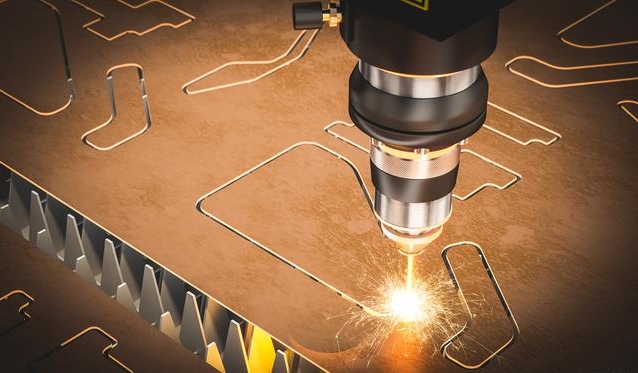Green Factory: Integrating Environmental Technologies into Sheet Metal Processing Facilities+ View more
Green Factory: Integrating Environmental Technologies into Sheet Metal Processing Facilities
+ View more
Date:2023-12-16 20:02
Introduction
The integration of environmental technologies in sheet metal processing plants marks a transformative shift toward sustainability and eco-conscious manufacturing practices. This article navigates through the core initiatives and technologies reshaping sheet metal processing facilities, exploring advancements in energy efficiency, waste reduction, recycling methods, and the overall pursuit of environmental responsibility within the industry.
The integration of environmental technologies in sheet metal processing plants marks a transformative shift toward sustainability and eco-conscious manufacturing practices. This article navigates through the core initiatives and technologies reshaping sheet metal processing facilities, exploring advancements in energy efficiency, waste reduction, recycling methods, and the overall pursuit of environmental responsibility within the industry.

Energy-Efficient Processes and Equipment
The optimization of energy consumption stands as a cornerstone in green sheet metal processing. Employing energy-efficient machinery, such as high-performance presses and advanced laser cutting systems, minimizes energy usage while maximizing productivity. Additionally, the implementation of smart controls and predictive maintenance ensures optimal operational efficiency, reducing overall energy demands within these facilities.
Renewable Energy Integration
The adoption of renewable energy sources plays a pivotal role in mitigating the environmental footprint of sheet metal processing plants. Integrating solar panels, wind turbines, or geothermal systems provides a sustainable energy supply, reducing reliance on conventional power sources. These renewable energy initiatives not only contribute to reducing greenhouse gas emissions but also offer long-term cost savings for plant operations.
Waste Reduction and Recycling Practices
Efficient waste management strategies are fundamental in green sheet metal processing. Implementing closed-loop systems for material recycling minimizes waste generation and maximizes resource utilization. Furthermore, adopting lean manufacturing principles and employing innovative recycling technologies enable the repurposing of scrap metal, reducing the need for raw materials and lessening environmental impact.
Water Conservation and Treatment
Water conservation measures are imperative in ensuring sustainable operations within sheet metal processing plants. Implementing water-efficient processes and recycling systems minimizes water consumption during various stages of metal fabrication. Advanced water treatment technologies ensure that discharged water meets environmental standards, contributing to the preservation of local ecosystems.
Eco-Friendly Materials and Coatings
The adoption of eco-friendly materials and coatings in sheet metal processing not only enhances product durability but also reduces environmental impact. Utilizing low-emission coatings, environmentally friendly lubricants, and recyclable materials aligns with sustainability goals while maintaining high-quality standards in sheet metal products.
Digitalization for Environmental Optimization
The integration of digital technologies facilitates environmental optimization in sheet metal processing. IoT-enabled sensors and data analytics offer real-time insights into energy consumption, process efficiency, and environmental impact. Machine learning algorithms aid in predictive maintenance, optimizing resource usage, and reducing waste across the production line.
Challenges and Future Outlook
While strides have been made in implementing environmental technologies, challenges persist. These include initial investment costs, regulatory compliance, and scalability of green initiatives. Overcoming these obstacles requires collaborative efforts among industry stakeholders, technological innovators, and policymakers. Looking ahead, the continuous advancement of environmental technologies and their seamless integration into sheet metal processing will pave the way for more sustainable and efficient manufacturing practices.
Conclusion
The integration of environmental technologies in sheet metal processing plants heralds a new era of sustainable manufacturing. Through a combination of energy-efficient processes, renewable energy sources, waste reduction strategies, and eco-friendly materials, these facilities are driving toward a greener future. Embracing environmental responsibility not only benefits the industry but also contributes to a healthier planet and underscores the pivotal role of sheet metal processing in fostering sustainable practices within the manufacturing landscape.
Share to:
Recommend wonderful blog posts

